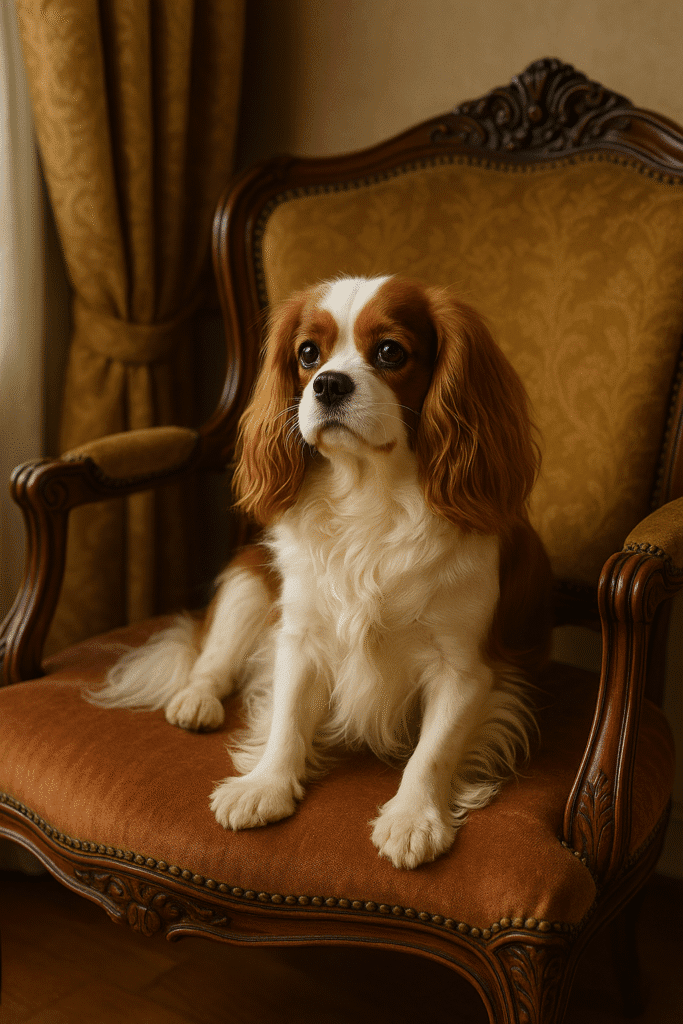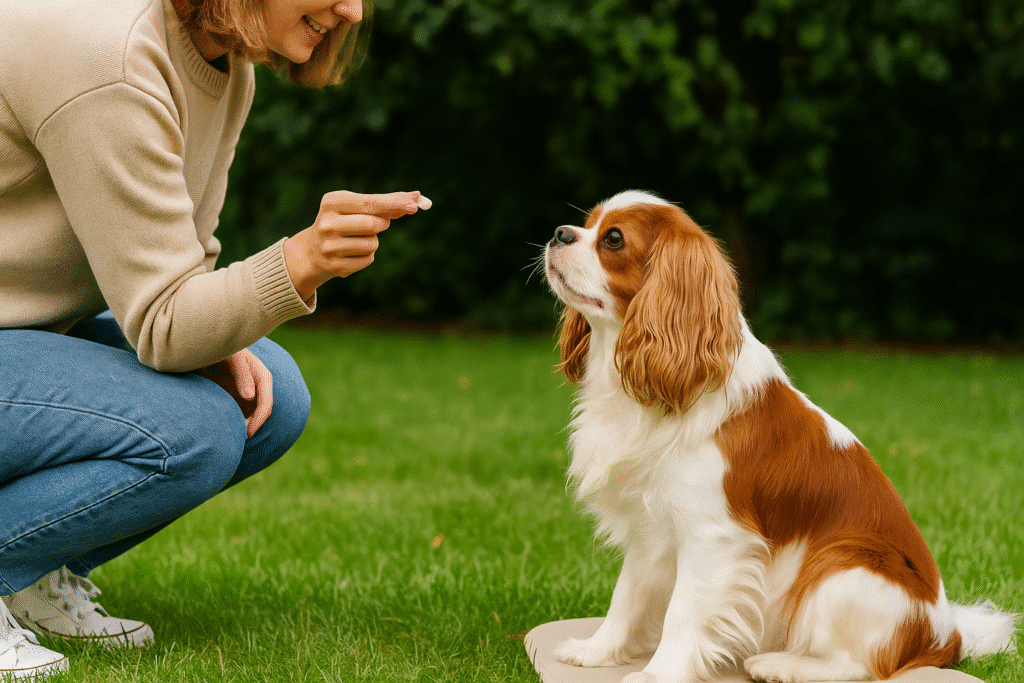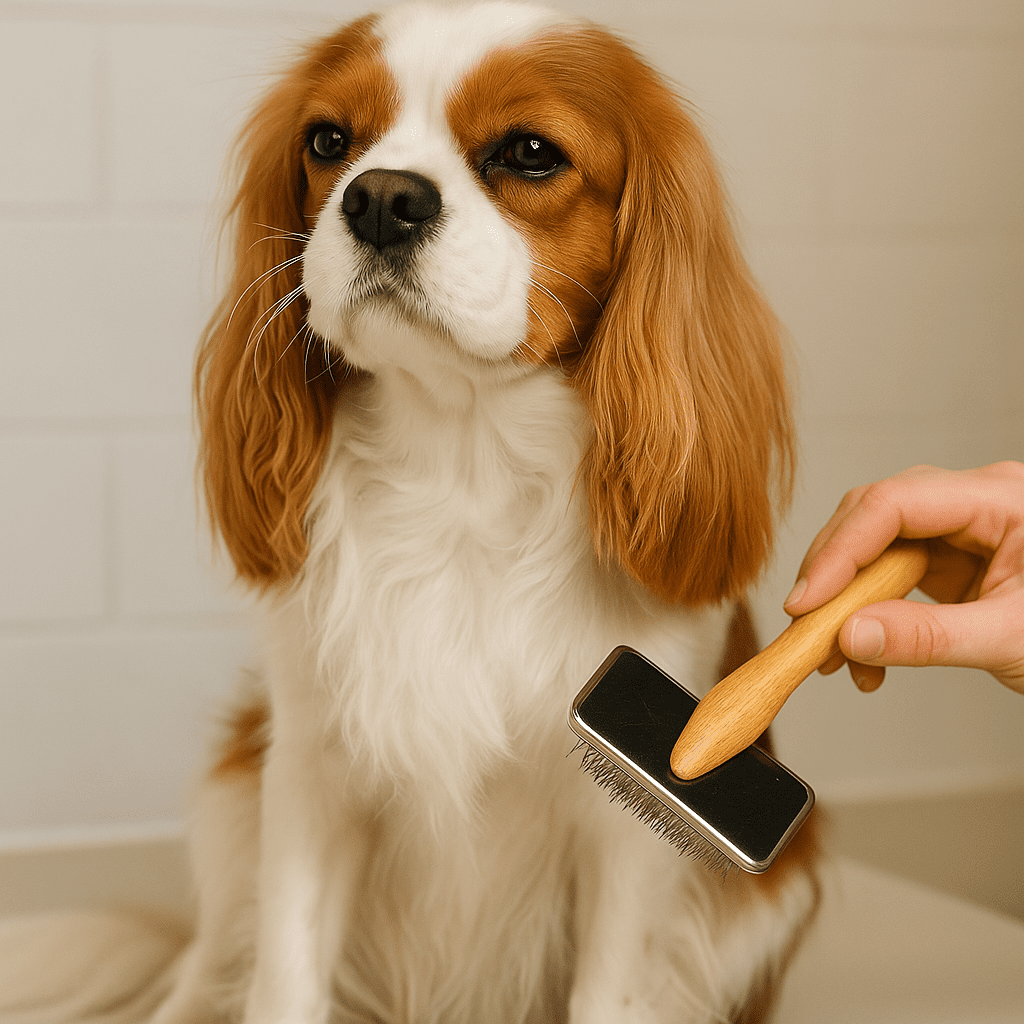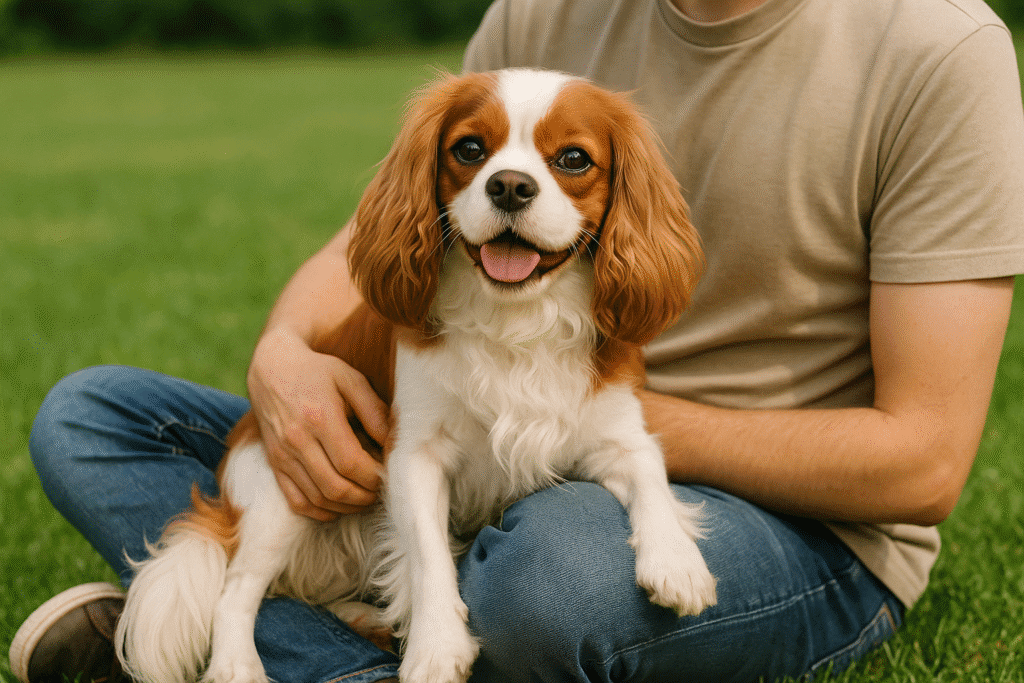Cavalier King Charles Spaniel Care Guide: The Affectionate Companion You’ll Never Forget
The Cavalier King Charles Spaniel is a small dog with a big heart. Known for their affectionate nature and family-friendly temperament, these gentle companions need proper grooming, training, and health care. This guide covers everything you should know to raise a happy and healthy Cavalier Spaniel.
Introduction
The Cavalier King Charles Spaniel is one of the most beloved toy breeds, famous for its affectionate and gentle personality. With their expressive eyes, silky coats, and loving temperament, Cavaliers are perfect companions for families, singles, and seniors alike. This guide explores their personality, care needs, grooming, training, and common health issues.

History of the Cavalier King Charles Spaniel
The Cavalier King Charles Spaniel has a long royal history, originally bred as lap dogs for European nobility. They were adored by King Charles II of England, from whom the breed takes its name. Their charm and affectionate personality have made them a favorite companion dog for centuries.
Personality and Temperament
Cavaliers are known for their affectionate and adaptable personality. They thrive on companionship and form strong bonds with their families. While they are playful and energetic, they are equally content to curl up on the couch for a nap.
Key Personality Traits
- Affectionate and loyal – they love being near their people.
- Gentle with children and other pets, making them ideal family dogs.
- Adaptable – they adjust well to apartments or larger homes.
- Curious and playful, but not overly demanding.

Training a Cavalier King Charles Spaniel
Training a Cavalier is usually straightforward thanks to their eagerness to please. Positive reinforcement methods work best. Early socialization helps them develop confidence and prevents shyness or separation anxiety.
Training Tips
- Start training early with basic commands.
- Use positive reinforcement (treats, praise, playtime).
- Crate training can help with housebreaking.
- Socialize with other dogs and people to avoid anxiety.
For more detailed training tips, check out our guide on How to Stop Dog Barking: Effective Training Methods.
Exercise Needs
Despite being a toy breed, Cavaliers need daily exercise to stay healthy. A couple of short walks and some indoor play are usually enough. They are not high-energy like Border Collies, but they do enjoy games and fetch.
Grooming Requirements
The Cavalier’s silky, feathered coat requires regular grooming. Weekly brushing prevents tangles, while occasional baths keep them fresh. Regular ear cleaning is essential, as their floppy ears can trap moisture and lead to infections.
Grooming Checklist
- Brush 3–4 times per week to prevent matting.
- Check ears weekly for signs of infection.
- Trim nails every 3–4 weeks.
- Regular dental care to prevent tartar buildup.
Health Considerations
Like many purebred dogs, Cavaliers have some predispositions to certain health issues. Regular vet visits and preventive care are essential.
Common Health Problems
- Mitral Valve Disease (MVD): A common heart issue in Cavaliers, often developing as they age.
- Syringomyelia: A neurological condition causing discomfort or pain.
- Ear Infections: Due to their floppy ears, moisture buildup can cause infections.
- Hip Dysplasia: Less common but possible in Cavaliers.
For more on health care, read our article on Common Dog Skin Problems & Solutions or check resources like PetMD: Cavalier King Charles Spaniel Health.
Feeding Your Cavalier
A balanced diet is crucial to keep Cavaliers healthy. High-quality dry kibble or fresh food with the right balance of protein, fat, and fiber works best. Avoid overfeeding since Cavaliers can gain weight easily.
Nutrition Tips
- Feed 2 small meals per day instead of free-feeding.
- Choose foods with omega-3 and omega-6 for coat health.
- Avoid foods toxic to dogs such as chocolate, grapes, and onions. (See our guide: Top 10 Foods Toxic to Dogs & Cats).
Is a Cavalier Right for You?
If you’re looking for a gentle, affectionate, and loyal companion, the Cavalier King Charles Spaniel may be the perfect breed. They are well-suited for families, singles, and seniors, provided they receive the love and care they deserve.

FAQ: People Also Ask
Are Cavalier King Charles Spaniels good family dogs?
Yes, they are gentle and affectionate, making them great companions for children and families.
Do Cavaliers bark a lot?
They are generally quiet, but may bark to alert their owners. Proper training helps manage excessive barking.
How long do Cavaliers live?
The average lifespan is 9–14 years, depending on genetics and health care.
Are Cavaliers easy to train?
Yes, their eagerness to please makes them quick learners with positive reinforcement methods.
Do Cavaliers need a lot of grooming?
They require regular brushing and ear cleaning but are not considered high-maintenance compared to some long-haired breeds.
Conclusion
The Cavalier King Charles Spaniel is a breed full of affection, loyalty, and charm. With proper care, training, and health management, they make wonderful lifelong companions. Whether you live in a small apartment or a large home, a Cavalier will bring joy to your life.
👉 Looking for more breed insights? Check out our detailed guide on the Labrador Retriever or explore Bernese Mountain Dogs.

